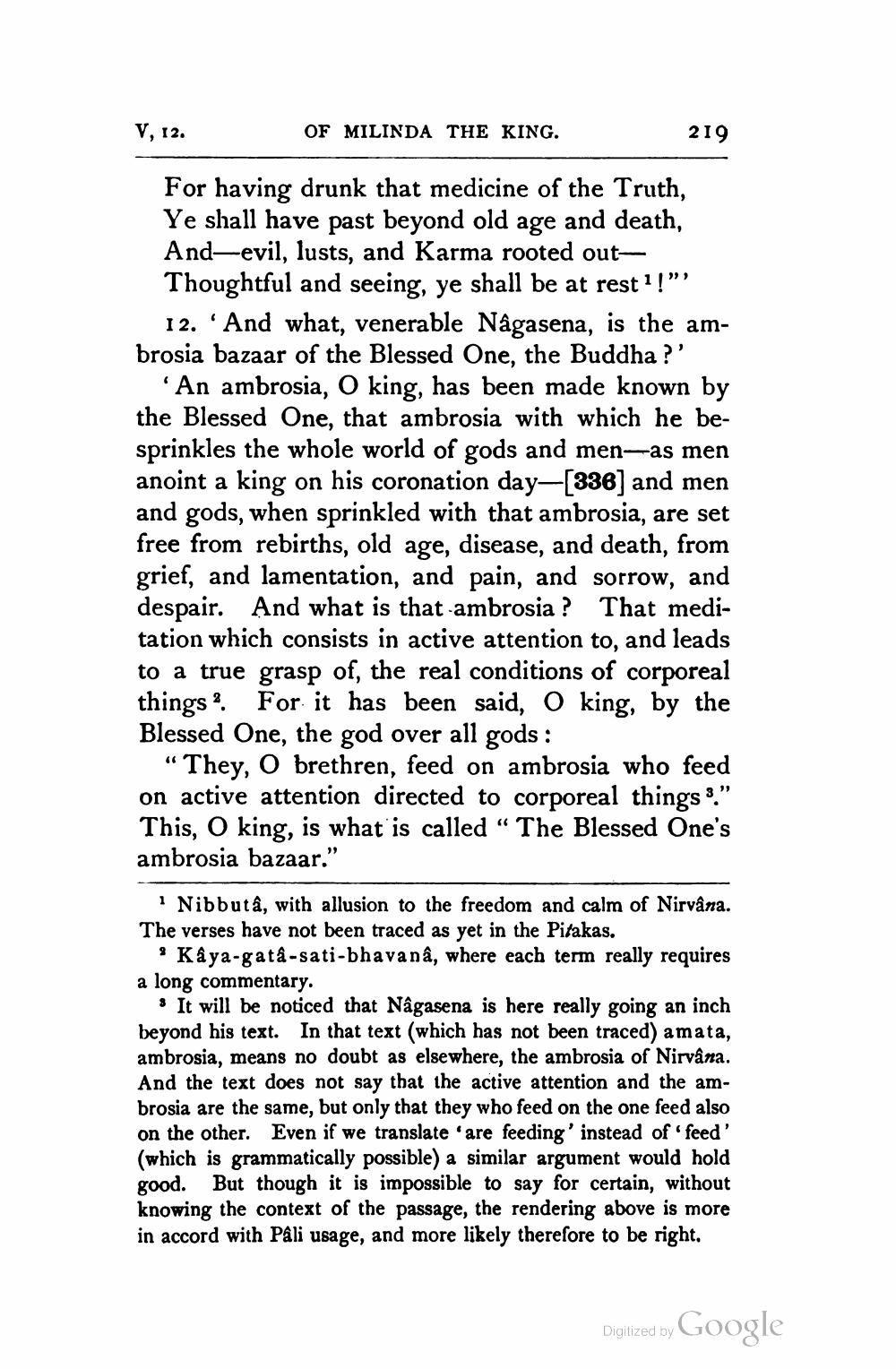________________
V, 12.
OF MILINDA THE KING.
219
For having drunk that medicine of the Truth, Ye shall have past beyond old age and death, And-evil, lusts, and Karma rooted outThoughtful and seeing, ye shall be at rest 1!"
12. 'And what, venerable Nâgasena, is the ambrosia bazaar of the Blessed One, the Buddha ?'
'An ambrosia, O king, has been made known by the Blessed One, that ambrosia with which he besprinkles the whole world of gods and menas men anoint a king on his coronation day—[336] and men and gods, when sprinkled with that ambrosia, are set free from rebirths, old age, disease, and death, from grief, and lamentation, and pain, and sorrow, and despair. And what is that-ambrosia ? That meditation which consists in active attention to, and leads to a true grasp of, the real conditions of corporeal things ? For it has been said, O king, by the Blessed One, the god over all gods :
“They, O brethren, feed on ambrosia who feed on active attention directed to corporeal things 3." This, O king, is what is called “The Blessed One's ambrosia bazaar."
Nibbutâ, with allusion to the freedom and calm of Nirvana. The verses have not been traced as yet in the Pitakas.
? Kaya-gatá-sati-bhavana, where each term really requires a long commentary.
It will be noticed that Nâgasena is here really going an inch beyond his text. In that text (which has not been traced) amata, ambrosia, means no doubt as elsewhere, the ambrosia of Nirvana. And the text does not say that the active attention and the ambrosia are the same, but only that they who feed on the one feed also on the other. Even if we translate are feeding' instead of feed' (which is grammatically possible) a similar argument would hold good. But though it is impossible to say for certain, without knowing the context of the passage, the rendering above is more in accord with Páli usage, and more likely therefore to be right.
Digitized by Google




